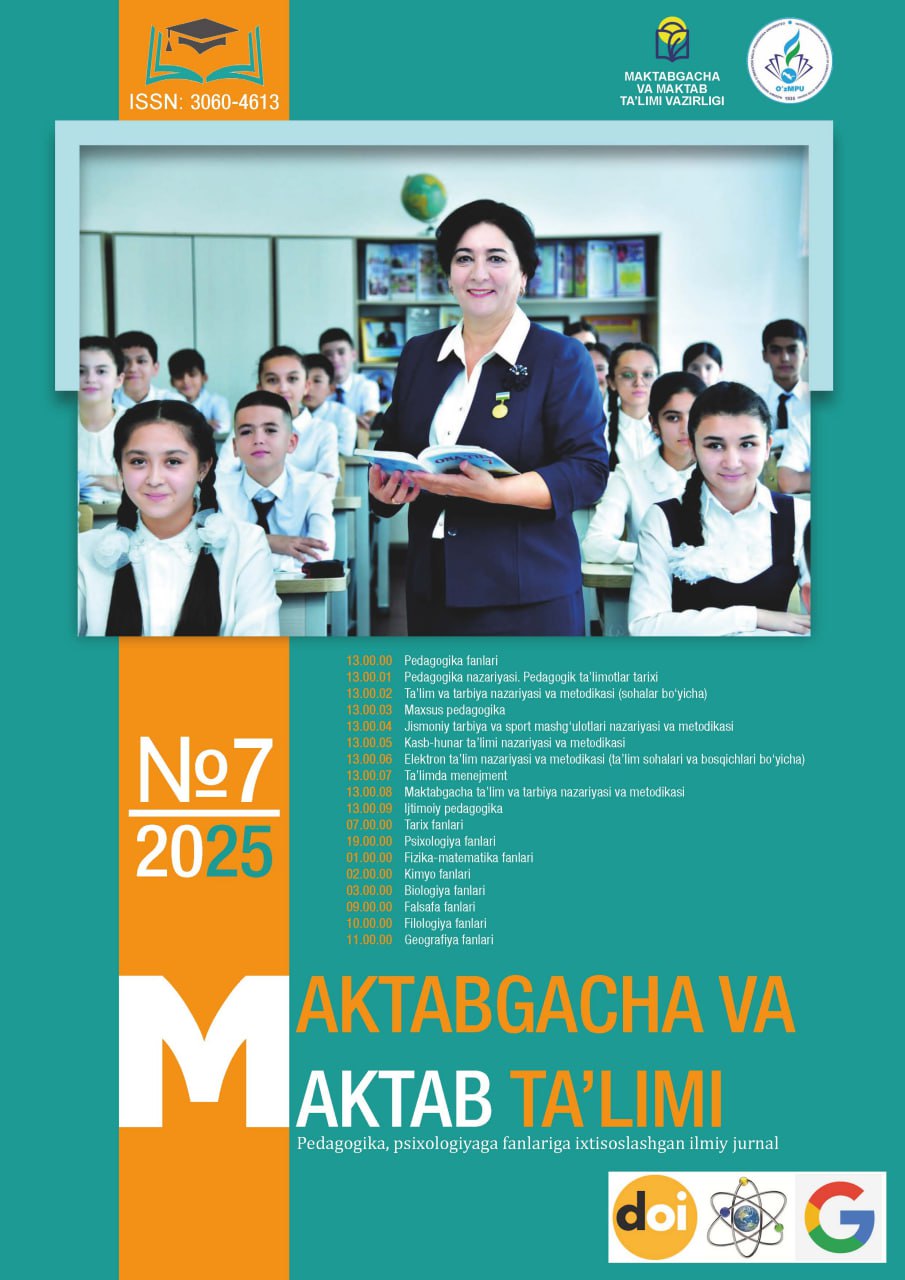Psycholinguistic Characteristics of Prospective Teachers and Their Impact on Communicative Competence
DOI:
https://doi.org/10.5281/zenodo.16576557Ключевые слова:
psycholinguistics, prospective teachers, communicative competence, cognitive factors, language educationАннотация
This article explores the psycholinguistic characteristics of prospective teachers and how these traits influence
the development of their communicative competence. The study highlights the importance of integrating psycholinguistic
awareness into teacher training programs to enhance language proficiency, cognitive flexibility, and interactive performance
in professional communication settings
Библиографические ссылки
Dewaele, J.-M. (2013). Emotions in Multiple Languages. Palgrave Macmillan.
Miyake, A., & Friedman, N. P. (1998). Individual differences in second language proficiency: Working memory as language
aptitude. In A. F. Healy & L. E. Bourne (Eds.), Foreign Language Learning: Psycholinguistic Studies on Training
and Retention (pp. 339–364). Lawrence Erlbaum Associates.
Skehan, P. (1998). A Cognitive Approach to Language Learning. Oxford University Press.
Canale, M., & Swain, M. (1980). Theoretical bases of communicative approaches to second language teaching and
testing. Applied Linguistics, 1(1), 1–47.
Bachman, L. F. (1990). Fundamental Considerations in Language Testing. Oxford University Press.
Richards, J. C., & Rodgers, T. S. (2014). Approaches and Methods in Language Teaching (3rd ed.). Cambridge University
Press.
Загрузки
Опубликован
Выпуск
Раздел
Лицензия
Copyright (c) 2025 MAKTABGACHA VA MAKTAB TA’LIMI JURNALI

Это произведение доступно по лицензии Creative Commons «Attribution» («Атрибуция») 4.0 Всемирная.

